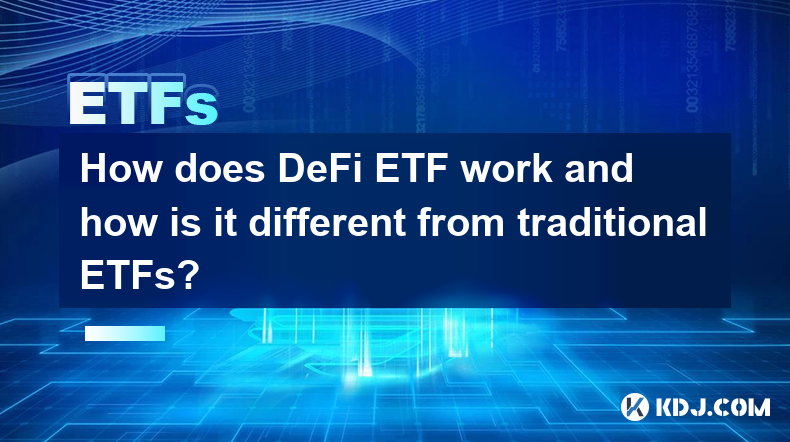-
 Bitcoin
Bitcoin $93,186.7808
5.67% -
 Ethereum
Ethereum $1,790.8332
13.12% -
 Tether USDt
Tether USDt $1.0003
0.02% -
 XRP
XRP $2.2275
6.78% -
 BNB
BNB $615.2576
2.56% -
 Solana
Solana $149.4751
7.43% -
 USDC
USDC $0.9999
-0.01% -
 Dogecoin
Dogecoin $0.1818
12.68% -
 Cardano
Cardano $0.6921
10.63% -
 TRON
TRON $0.2475
0.57% -
 Chainlink
Chainlink $14.3998
9.70% -
 Avalanche
Avalanche $22.4621
12.88% -
 Sui
Sui $2.8002
25.37% -
 UNUS SED LEO
UNUS SED LEO $9.0584
-0.74% -
 Stellar
Stellar $0.2674
7.75% -
 Shiba Inu
Shiba Inu $0.0...01377
10.75% -
 Toncoin
Toncoin $3.1325
7.14% -
 Hedera
Hedera $0.1821
6.81% -
 Bitcoin Cash
Bitcoin Cash $357.0499
3.45% -
 Polkadot
Polkadot $4.0875
8.94% -
 Litecoin
Litecoin $84.5855
7.26% -
 Hyperliquid
Hyperliquid $19.0943
2.65% -
 Bitget Token
Bitget Token $4.6448
4.17% -
 Dai
Dai $0.9998
-0.01% -
 Ethena USDe
Ethena USDe $0.9994
0.02% -
 Pi
Pi $0.6524
3.07% -
 Monero
Monero $225.3741
4.74% -
 Pepe
Pepe $0.0...09153
14.40% -
 Uniswap
Uniswap $5.9461
12.68% -
 Aptos
Aptos $5.2797
8.51%
How does DeFi ETF work and how is it different from traditional ETFs?
DeFi ETFs, unlike traditional ETFs, provide exposure to decentralized and autonomous blockchain-based projects, offering diversification and potentially higher returns but also increased risk.
Jan 07, 2025 at 03:40 am

Key Points:
- DeFi ETFs invest in a basket of decentralized finance protocols and tokens.
- Traditional ETFs track the performance of a specific index or asset.
- Unlike traditional ETFs, DeFi ETFs offer exposure to decentralized and autonomous projects built on blockchain technology.
- DeFi ETFs can provide diversification and potentially higher returns but also come with increased risk.
How does DeFi ETF work?
- Selection of Assets: DeFi ETFs typically hold a diversified portfolio of tokens issued by various DeFi protocols. These assets may include governance tokens, utility tokens, and stablecoins, providing exposure to different segments of the DeFi ecosystem.
- Asset Management: DeFi ETF managers are responsible for selecting, monitoring, and adjusting the portfolio in line with the investment objectives and strategies. They may employ active or passive management techniques, similar to traditional ETF managers.
- Token Custody: DeFi ETF providers usually hold the underlying tokens in secure digital wallets or through partnerships with custodians. This ensures the safekeeping and accessibility of the assets for investors.
- Trading Mechanism: DeFi ETFs are typically traded on cryptocurrency exchanges just like other crypto assets. Investors can buy or sell shares of the ETF, which represent a proportional ownership in the underlying portfolio.
How is DeFi ETF different from traditional ETFs?
- Underlying Assets: DeFi ETFs invest in decentralized finance assets, such as cryptocurrency and tokens, while traditional ETFs typically track traditional financial instruments, such as stocks, bonds, or commodities.
- Decentralization: DeFi ETFs provide exposure to DeFi protocols and dApps, which are often decentralized and autonomous, offering a higher degree of transparency and potential resistance to censorship.
- Risk Profile: DeFi ETFs tend to be more volatile and risky compared to traditional ETFs due to the inherent fluctuations and regulatory uncertainty associated with the crypto market.
- Accessibility: DeFi ETFs may not be as accessible to retail investors as traditional ETFs due to limited availability on mainstream investment platforms and potential regulatory challenges.
Benefits of investing in DeFi ETFs:
- Diversification: DeFi ETFs offer exposure to a diverse range of DeFi assets, reducing the concentration risk associated with investing in individual projects.
- Convenience: DeFi ETFs provide an easy way for investors to gain exposure to the DeFi sector without having to navigate the complexities of decentralized exchanges and individual token purchases.
- Potential for High Returns: DeFi ETFs offer the potential for higher returns compared to traditional ETFs, due to the growth potential of the DeFi industry.
Risks associated with DeFi ETFs:
- Volatility: DeFi assets can be highly volatile, leading to significant fluctuations in the value of the ETF.
- Regulatory Uncertainty: The regulatory landscape for DeFi is still evolving, which could introduce legal and compliance challenges for ETF providers.
- Investment Risk: The underlying DeFi projects and assets may not be successful, leading to potential losses for investors.
- Exchange Risk: Cryptocurrency exchanges where DeFi ETFs are traded can be vulnerable to security breaches and hacking incidents.
FAQs:
What are some considerations before investing in a DeFi ETF?
- Research the ETF provider: Choose an ETF provider with a strong track record and transparent investment strategies.
- Understand the underlying assets: Familiarize yourself with the specific DeFi protocols and tokens included in the ETF's portfolio.
- Assess your risk tolerance: Consider the potential volatility and regulatory risks associated with DeFi ETFs before investing.
Are DeFi ETFs appropriate for all investors?
- No, DeFi ETFs are not suitable for risk-averse investors or those who lack experience in cryptocurrency investing.
- Due to their high volatility and potential regulatory uncertainties, DeFi ETFs are typically more suitable for sophisticated and knowledgeable investors who can tolerate the associated risks.
How can I stay informed about the DeFi ETF market?
- Follow industry publications: Read reputable news outlets and blogs dedicated to the crypto and DeFi space.
- Monitor regulatory developments: Keep track of regulatory initiatives and actions that may affect the DeFi ETF industry.
- Track ETF performance: Monitor the performance of DeFi ETFs against relevant benchmarks and market conditions.
Disclaimer:info@kdj.com
The information provided is not trading advice. kdj.com does not assume any responsibility for any investments made based on the information provided in this article. Cryptocurrencies are highly volatile and it is highly recommended that you invest with caution after thorough research!
If you believe that the content used on this website infringes your copyright, please contact us immediately (info@kdj.com) and we will delete it promptly.
- Bitcoin Breaks Through $90,00 as Trump Says He Has 'No Intention' of Firing Fed Chair Jerome Powell
- 2025-04-23 12:35:12
- Musk: Not quitting DOGE, just reducing time allocation
- 2025-04-23 12:35:12
- US Securities and Exchange Commission charges man who allegedly created crypto scheme that swindled 90,000 people out of $200M
- 2025-04-23 12:30:12
- Bitcoin Breaks Above $89,000 to Hit Its Highest Price Since Early March
- 2025-04-23 12:30:12
- US President Donald Trump’s media conglomerate, Trump Media and Technology Group, has signed an agreement with crypto exchange Crypto.com
- 2025-04-23 12:25:12
- The DPDP Act - An Overview:
- 2025-04-23 12:25:12
Related knowledge

What role does SEC play in Bitcoin ETF approval?
Feb 25,2025 at 06:48am
Key Points:SEC's Role in Bitcoin ETF Approval ProcessHistorical Efforts to Establish a Bitcoin ETFSEC's Criteria for Bitcoin ETF ApprovalPotential Impact of a Bitcoin ETF on the Cryptocurrency MarketTimeline and Outlook for Bitcoin ETF ApprovalArticle:SEC Play in Bitcoin ETF ApprovalThe United States Securities and Exchange Commission (SEC) plays a crit...

Who is eligible to issue Bitcoin ETFs?
Feb 25,2025 at 11:13am
Key Points:Only regulated financial institutions with the necessary expertise and infrastructure are eligible to issue Bitcoin ETFs.The Securities and Exchange Commission (SEC) has not yet approved any spot Bitcoin ETFs, but has approved several futures-based ETFs.Applicants must meet stringent requirements, including having a strong track record and su...

What impact does Bitcoin ETF have on the market?
Feb 25,2025 at 11:37am
Key Points:Introduction to Bitcoin ETFs and their role in the cryptocurrency marketHistorical development and performance of Bitcoin ETFsPotential benefits of Bitcoin ETFs for investors and the marketRisks and limitations associated with Bitcoin ETFsRegulatory considerations and their impact on Bitcoin ETFsArticle:Introduction to Bitcoin ETFsBitcoin exc...

Which investors are Bitcoin ETFs suitable for?
Feb 27,2025 at 04:01pm
Key Points:Understanding Bitcoin ETFsBenefits of Bitcoin ETFsSuitability of Bitcoin ETFs for Different InvestorsAssessing Risk Tolerance and Investment GoalsConsidering Short-Term and Long-Term StrategiesExamining Tax ImplicationsSeeking Professional AdviceUnderstanding Bitcoin ETFsBitcoin exchange-traded funds (ETFs) are investment vehicles that track ...

What is the administrative expenses of Bitcoin ETFs?
Feb 26,2025 at 12:24am
Key Points:Administrative expenses are a crucial factor to consider when evaluating Bitcoin ETFs.These expenses can significantly impact the performance of the fund and ultimately the investor's returns.Understanding the various components of administrative expenses is essential for informed decision-making.Comparing administrative expenses across diffe...

What are the fees for purchasing Bitcoin ETFs?
Feb 27,2025 at 07:13pm
Key Points:Bitcoin exchange-traded funds (ETFs) are a cost-effective and regulated way to gain exposure to Bitcoin.Fees associated with Bitcoin ETF purchases vary depending on the platform, trading volume, and account type.It is essential to evaluate fee structures carefully to optimize investment returns.Fees Associated with Purchasing Bitcoin ETFs1. B...

What role does SEC play in Bitcoin ETF approval?
Feb 25,2025 at 06:48am
Key Points:SEC's Role in Bitcoin ETF Approval ProcessHistorical Efforts to Establish a Bitcoin ETFSEC's Criteria for Bitcoin ETF ApprovalPotential Impact of a Bitcoin ETF on the Cryptocurrency MarketTimeline and Outlook for Bitcoin ETF ApprovalArticle:SEC Play in Bitcoin ETF ApprovalThe United States Securities and Exchange Commission (SEC) plays a crit...

Who is eligible to issue Bitcoin ETFs?
Feb 25,2025 at 11:13am
Key Points:Only regulated financial institutions with the necessary expertise and infrastructure are eligible to issue Bitcoin ETFs.The Securities and Exchange Commission (SEC) has not yet approved any spot Bitcoin ETFs, but has approved several futures-based ETFs.Applicants must meet stringent requirements, including having a strong track record and su...

What impact does Bitcoin ETF have on the market?
Feb 25,2025 at 11:37am
Key Points:Introduction to Bitcoin ETFs and their role in the cryptocurrency marketHistorical development and performance of Bitcoin ETFsPotential benefits of Bitcoin ETFs for investors and the marketRisks and limitations associated with Bitcoin ETFsRegulatory considerations and their impact on Bitcoin ETFsArticle:Introduction to Bitcoin ETFsBitcoin exc...

Which investors are Bitcoin ETFs suitable for?
Feb 27,2025 at 04:01pm
Key Points:Understanding Bitcoin ETFsBenefits of Bitcoin ETFsSuitability of Bitcoin ETFs for Different InvestorsAssessing Risk Tolerance and Investment GoalsConsidering Short-Term and Long-Term StrategiesExamining Tax ImplicationsSeeking Professional AdviceUnderstanding Bitcoin ETFsBitcoin exchange-traded funds (ETFs) are investment vehicles that track ...

What is the administrative expenses of Bitcoin ETFs?
Feb 26,2025 at 12:24am
Key Points:Administrative expenses are a crucial factor to consider when evaluating Bitcoin ETFs.These expenses can significantly impact the performance of the fund and ultimately the investor's returns.Understanding the various components of administrative expenses is essential for informed decision-making.Comparing administrative expenses across diffe...

What are the fees for purchasing Bitcoin ETFs?
Feb 27,2025 at 07:13pm
Key Points:Bitcoin exchange-traded funds (ETFs) are a cost-effective and regulated way to gain exposure to Bitcoin.Fees associated with Bitcoin ETF purchases vary depending on the platform, trading volume, and account type.It is essential to evaluate fee structures carefully to optimize investment returns.Fees Associated with Purchasing Bitcoin ETFs1. B...
See all articles
























































































